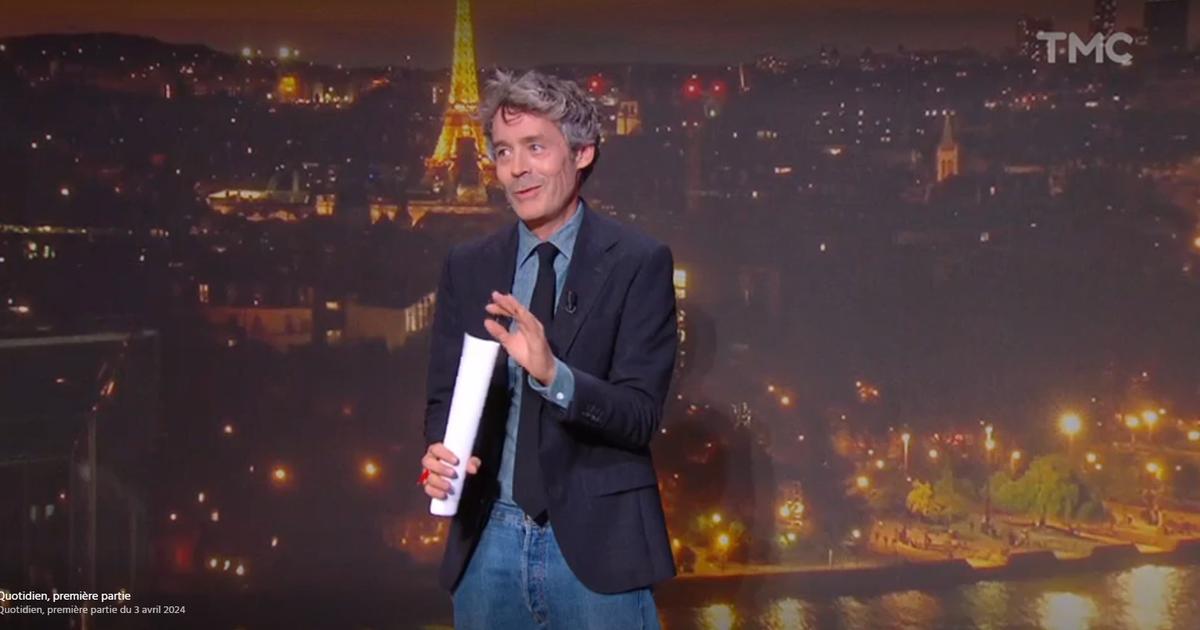If one wanted to draw a sort of map of contemporary Argentine literature, the name of Ariana Harwicz could not be missing. Beyond the awards and critical recognition, the work of this author who has lived in France for more than fifteen years and was part of the long list of the Man Booker International in 2018 makes its way by its own weight. In 2024 he will premiere an opera of his authorship at the Teatro Colón, in which he works together with the composer Óscar Strasnoy and the director Mariano Pensotti.
In times of various solemnities and an apparent epochal common sense that fears political incorrectness, his novels –the Trilogy of the passion formed by Matate amor, La débil mental and Precoz, and Degenerado–, his non-fiction –Desertar, co-written with Mikaël Gómez Guthart– and even his interventions in tweeter would seem to pose rather the opposite: His prose places the reader with his teeth against the pavement and gives him a sledgehammer that leaves him typing no matter what they say. But beware: in Harwicz there is no unnecessary paraphernalia, wasted pyrotechnics or an artifice in search of the pose.
In Harwicz there is an amalgam between ferocity and lyricism in pursuit of artistic creation. And the same will be found by the reader who dares to open the pages of The Noise of an Age (Marciana), a book that inaugurates the non-fiction collection of this independent label and that collects essays, opinion notes, phrases and aphorisms of the writer in which she rants against the established and defines in what ways she understands literature.
"The path of this book was different: nobody sent it, we went looking for it," explain the editors of Marciana (Denis Fernández and Manuel Álvarez) in a brief note that opens the volume. The editors say that they saw in various articles, notes, interviews, conferences and interventions in social networks of the writer the possibility of interweaving all that material and putting it in dialogue as a textual unit.
Thus was born this book of 129 pages of hybrid structure, without index, whose reading can be bifurcated into various paths: there is the possibility of being read in one go. But it is rather preferable to opt for a serene reading, so that each reflection decants with its respective density. Harwicz, whose first novel is about to arrive in Hollywood with none other than Martin Scorsese as producer, elaborates reflections that do not end up being simple because they are brief. Rather they function as a chain of haikus.
"I think that writing a novel is digging tunnels to escape, that physical deterioration with blows to the head and sand in the lungs, that hallucinatory state for not sleeping, and at the same time, that thirst to reach the end of the tunnel," he writes and risks a style manual. Reading this series of lucubrations invites reflection on what it means to be a writer, why one writes and, in addition, builds bridges towards a dialogue that exceeds literature itself.
Here Harwicz deploys questions to feminism ("What depravity the discourse that makes women innocent by nature"), to the much-cited culture of cancellation and, hand in hand with the latter, to the separation between work and artist ("The only condition of a writer, of whatever generation, culture and era, is to be unique and irreducible").
You can also read the foundations of the voracity that can be read in his literature. It's kind of behind the scenes. The writer also shares her cultural and aesthetic references ranging from the French writer Marguerite Duras to the American pianist Glenn Gould. Harwicz becomes a writer who rehearses, in the good sense of the term, in times when it is often believed that writers no longer intervene in the intellectual field or polemicize beyond some passing runrún in social networks.
"What counts is the faith in the work, not the reception of the time," Harwicz writes and seems to sum up in that sentence the spirit of the whole book. In another passage, he is encouraged to sentence: "Every novel is a process against oneself."
His way of understanding literature would seem to be an extreme search of the writer that even distances him from life itself and takes him to a beyond that even comes to be related to death: "The non-professional writer cannot control his heart, he has to make the book he has to do, to the last consequences". He also polemicizes against the market and the idea of careerism: "The two greatest enemies of the writer: professionalization and imposture."
Translated into more than seventeen languages, Ariana Harwicz seems to be especially interested in sticking her finger into the wound and digging into the most uncomfortable areas of the prevailing reality. His latest novel, Degenerate (2019), is narrated in the first person from the voice of a pedophile. And his reception was not exempt from essentialist, homologating readings, which came to raise some moral questions.
The noise of an era functions not only as the necessary obverse to understand the craft of an author willing to ignore any well-thinking dogma but also to broaden the horizon of thought of a certain critical mass that still tries to understand the difference between author, work and narrator. "Art does not have to have any function," concludes the writer, whose greatest warning is perhaps held about the danger of reading from identity: "One reads to forget oneself, to erase oneself, to get rid of, to disidentify, to de-individualize."
The noise of an era, Ariana Harwicz. Marciana, 144 pp. $4,500
Interview: The Marketing of Good Causes
In your book you explore what you describe as "the noise of the time" and point out some problems (cancellation, separating the work from the author and reading identity). What's your biggest concern about it?
"Cynicism bothers me. Imposture. Being masks. I believe that as I get older I will have to do spiritual work so that it bothers me less. Someone once told me: "I vindicate hypocrisy." In the sense that that double-faced, that whispering in the back is better than the knife in the forehead. For now I could not reach that level of spirituality, of acceptance. The cynicism I see around me, in art, is very painful to me. I mean, wasn't it that they defended good causes, that there was a whole protocol, a shouted discourse of good? Not at all. I would prefer that they openly apologize for crime. My malaise in the culture is cynicism. It would seem that in this era art is more inclined to good causes and not. It's pure marketing.
You also warn about the essence of the writer, that anyone, by the mere fact of writing, calls himself an author.
It is unfair that the scapegoat is always writing. We all tacitly agree that not everyone can be a classical dancer, chef, hairdresser or pianist. The same does not happen in writing. Indeed, writing can be written by anyone. Even someone who hates writing. It would be nice to think about what writing is. If writing is just the verb then I can be a runner, because I can run, or a swimmer because I can swim. I do not understand why any profession is required to be rigorous, a formality, and writing seems to be the same as moving your hands. They are scribes. Getting to write is the hardest thing there is.
In one passage you come to the conclusion that it would be very interesting to achieve a literature that can wake you up from a jolt in the middle of the night. What are you trying with yours?
"I try that. The only thing that matters is that it appears to you as flashes in your life. It happens to me, I guess to everyone. I'm anywhere, driving in the field, on a stretcher for surgery, before I fall asleep, and confusing things appear that I never understand if they are my memories or memories from a book. A scene, a moment, a dialogue permeates me. That would be my wish, my dream: that some scene, a description, a phrase from my books enter someone's life and accompany it.
In several interviews you point out the need to write from discomfort and as if one were dead. A kind of leap into the void. Why? Were you always clear about this?
It has to do with thinking about where we write from: from life, dreams, the beyond, marginality, confinement. It seems to me that today too much is written from life. And life, besides being incredible, is horrible. It's crazy but it's also boring, repetitive, clumsy, mediocre, full of corruption. There is the market. I do not remember which poet said it, and I agree, that one is also dead when one writes. You are not in life, you are somewhere else. It's that other thing that you catch, like a vision, when you write. That for me what needs to be done. Writing is, all the time, a struggle against the idea of becoming bourgeoisified. Against comfort, against commonplace. That struggle is very difficult because you have to disarm everything: the language, the concepts. That's why I say I'm dead. Sure is not being in life. Rather it is trying to be between life and death.
P.D.M.
See also
Ariana Harwicz: how her revulsive work came to Hollywood at the hands of Martin Scorsese
See also









